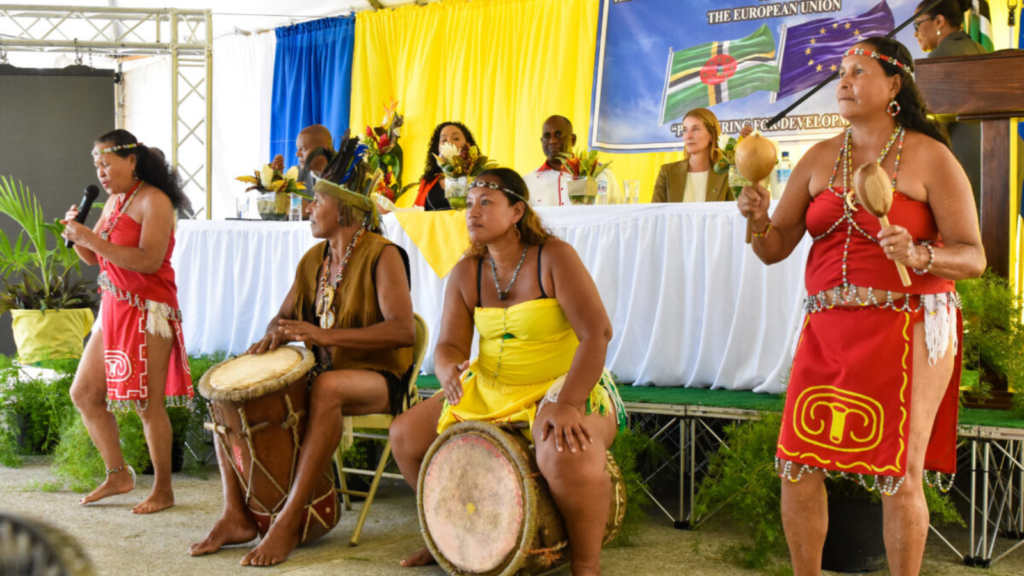In the Caribbean, the costly destruction of infrastructure, as well as intangible aspects of society and the economy, have exponentially increased within the last decade — human-induced contributions to the climate crisis, primarily from industrialised countries, have led to rising global temperatures and intensified storm activity. The housing sector has been particularly hard hit, exacerbating the need for the proper establishment and operation of the Loss and Damage Fund for countries greatly affected by the effects of climate change activity.
The Loss and Damage Fund refers to the establishment of a global financial mechanism funded mainly by industrialised countries, to significantly support green-based initiatives that involve climate mitigation and adaptation projects.
During the passage of Hurricane Maria on September 18, 2017, many Dominican families lost their homes. According to The World Bank, total damages and losses were estimated at US $1.3 billion or 224% of the island’s GDP. The rainforest was destroyed, leaving a severe impact on Dominica’s designation as a “Nature Island” tourist destination, with the greatest losses being experienced in the tourism sector (19%) and the greatest damages affecting the housing sector (38%).

In Dominica, both state and non-governmental organisations have stepped in to fill the gap, providing effective assistance and climate-resilient housing for citizens and residents over the past six years.
Addressing the 28th Session of the Conference of the Parties in his capacity as Chair of the Caribbean Community (CARICOM) on August 10 in Barbados, Dominica Prime Minister Roosevelt Skerrit, in speaking to COP28 President-Designate Dr. Sultan Al Jaber, announced that “Loss and Damage” will be one of the key topics to be brought to the COP28 negotiation table by the CARICOM delegation.
Lamenting that COP28 — which takes place from November 30 to December 12 this year in Dubai, United Arab Emirates (UAE) — must address “the operationalisation and capitalisation of the Loss and Damage Fund,” Prime Minister Skerrit said it will go a long way in providing “critical climate finance to the most vulnerable countries that are ravaged by the adverse impacts of climate change.” He added that “the funds must be in the form of grants.”
During his presentation at a handing over ceremony of 45 climate-resilient houses on January 25, Suranga Kanandawa, senior disaster management risk specialist and task team leader of the World Bank mission, spelt out the importance of these houses to the beneficiaries.
The consensus that has been reached for negotiations at COPP28 includes fast-tracking energy transition and slashing emissions before 2030, transforming climate finance, and placing people, lives, and livelihoods at the heart of climate action.
Although Dominica’s housing initiative continues to bring peace of mind to many, even as uncertain weather patterns threaten the island every year, it is not without significant financial cost to the country. In 2017, the housing ministry announced its adoption of internationally recognised building codes to construct these climate-resilient houses and corresponding infrastructure. Most recently, on October 12, it handed over 18 homes to the Indigenous families of Dominica’s Kalinago Territory, located in the northeast of the island. The European Union (EU)-funded project was aimed at reducing vulnerability risk and increasing climate resilience in the area.
The government recently announced that it would help fund 50 additional resilient houses, which will be erected through the 11th European Development Fund (EDF), B-Envelope State and Resilience Contract for Rehabilitation. The country has received significant financial support from the EU, which engaged in a comprehensive programme to assist Dominica in building resilience against climate change impacts post-Hurricane Maria. The reach of the programme includes healthcare, education, public infrastructure, housing, and water resource management.
As Caribbean leaders gear up for COP28, Dominica is doing its part in the climate fight by providing resilient housing solutions for its citizens. Despite the attribution of Loss and Damage that climatic disasters bring upon the island — and the current absence of a quick and efficient fund in that regard — it is clear that new and robust Loss and Damage financial mechanisms must be established, to assist Small Island Developing States (SIDS) in rebounding from reversible and non-recoverable damage.
This story was originally published by Global Voices, with the support of Climate Tracker’s COP28 Climate Justice Reporting Fellowship.